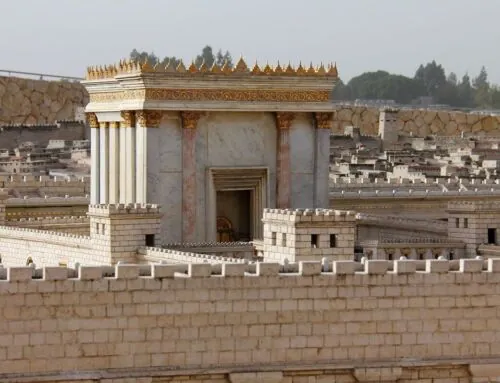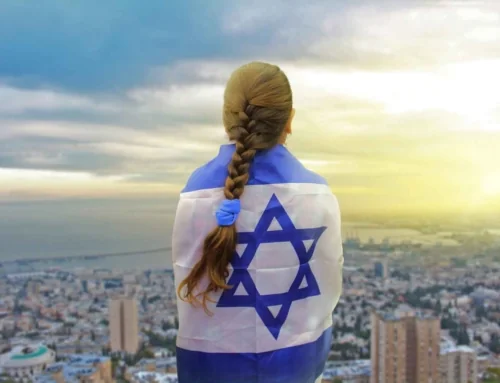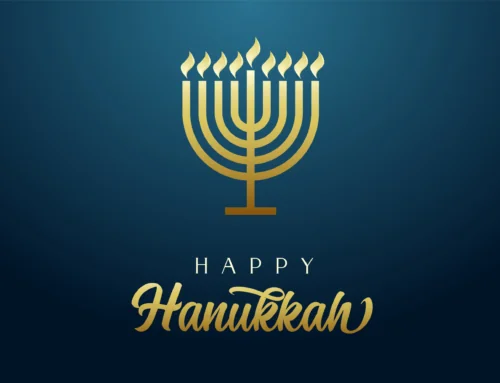Jewish Fasting – A Practice of Culture and Faith in Israel
Understanding Jewish Fasting Traditions
Jewish fasting is an important ritual of religious significance and sacrifice. This act of religious life is such a tremendous and deeply rooted practice that is called for in the Bible, both in the Old Testament and New Testament.
Historical Significance of Jewish Fasting
Fasting holds significant religious and historical importance in Judaism. Fasting in Judaism is deeply rooted in historical events, serving as a means of spiritual reflection, repentance, and remembrance of significant events in Jewish history. It is a way for individuals and the community to express sorrow, seek forgiveness, and draw closer to God.
When Does Jewish Fasting Traditionally Occur?
There are specific times when Jewish fasting typically occurs as per tradition.
Full Fasts in Jewish Fasting
Jewish fasting occurs only twice a year for a full 24 hours. These solemn days are centered on mourning and repentance, requiring participants to fast from sundown to sundown on the following day.
These days include Yom Kippur and Tisha B’Av.
Yom Kippur
This day is the holiest day of the Jewish year. This fast is actually required according to Leviticus 23:26-32:
The Lord said to Moses, “The tenth day of this seventh month is the Day of Atonement. Hold a sacred assembly and deny yourselves, and present a food offering to the Lord. Do not do any work on that day, because it is the Day of Atonement, when atonement is made for you before the Lord your God. Those who do not deny themselves on that day must be cut off from their people. I will destroy from among their people anyone who does any work on that day. You shall do no work at all. This is to be a lasting ordinance for the generations to come, wherever you live. It is a day of sabbath rest for you, and you must deny yourselves. From the evening of the ninth day of the month until the following evening you are to observe your sabbath.”
What else takes place on Yom Kippur?
Not only does fasting take place on this day, but it is also a legal holiday for all of Israel. This means there is no public transportation, all shops and businesses are closed, and the airport is closed. There are no incoming or outgoing flights on this day, which is something to note if you are planning to fly during this time.
Tisha B’Av
This day is an annual fast day in Judaism. It recognizes a day on which a number of disasters in Jewish history occurred, primarily the destruction of both Solomon’s Temple by the Neo-Babylonian Empire and the Second Temple by the Roman Empire in Jerusalem. This day is the ninth day of the month of Av, which is arguably the saddest day on the Hebrew calendar.
Minor Fasts in Jewish Fasting Traditions
Minor fasts are also done on 6 different days throughout the year, although with some differences. The difference between these major and minor fasts lies in the fact that these minor fasts do not extend for 24-hours. Instead, individuals fast from sunrise to sunset on the same day. Some people also choose to refrain from activities like getting haircuts or participating in entertainment for this day.
Some examples of these minor fasts include:
Fast of Gedalia:
The commemoration of the death of Gedaliah, is a minor Jewish fast day observed from dawn until dusk. Gedaliah, was the righteous governor of what was the Kingdom of Judah. His untimely death marked the end of Jewish autonomy after the destruction of the First Temple and the fall of King Zedekiah.
Tenth of Tevet:
The fasting is a commemoration of the siege of Jerusalem by Nebuchadnezzar II of Babylonia, which commenced on that specific date. This tragic event ultimately led to the destruction of Solomon’s Temple (the First Temple), the collapse of the Kingdom of Judah, and the Babylonian exile of the Jewish people.
Fast of Esther:
This observes a fast on Purim eve, commemorating two communal fasts observed by the Persian Jewish community of Shushan, as detailed in the Book of Esther. These fasts were undertaken to seek salvation from annihilation due to an evil decree instigated by the royal vizier—an anti-Jewish enemy of the Amalekite nation.
This particular fast is a customary practice and is not explicitly mentioned in the Talmud. However, references to it can be found in the Midrash and other later sources dating back to the days of the Gaonim. Consequently, it is considered less stringent than other established fasts.
Seventeenth of Tammuz:
The commemoration of the breaching of the walls of Jerusalem. It is also said to be the day of the so-called “Five Calamities”. These include; Moses breaking the tablets of the Ten Commandments, the tamid offering ceasing, the burning of a scroll by a Roman leader, and the day an idol was erected within the Temple.
Understanding Customary Fasts in Jewish Fasting Traditions
In addition to the six main fasts of the year there are additional customary days of Jewish fasting. These fasts include the Fast of the Firstborn, Yom Kippur Katan, BaHab, Shovavim Tat, Khmelnytsky massacres, the Fast of Samuel, and the Fast of Moses.
Moreover, individual fasts are observed for various reasons. Some undertake fasting as an act of repentance or during periods of intense prayer. In certain Jewish traditions, it is customary for the bride and groom to fast before their wedding, refraining from eating until after the chuppah. This abstinence continues until the “yichud,” a private meal during the reception, marking the first time the newlyweds are alone together.
Rules of Jewish Fasting
Fasting in Judaism requires a strong commitment. While some contemporary fasts may involve choosing specific items to abstain from, traditional Jewish fasting entails refraining from everything. It goes beyond abstaining from food and includes restrictions on water consumption, extending to activities like brushing teeth and bathing.
Who Participates in Jewish Fasting Traditions?
There are different sects of the Jewish faith, just as there are in Christianity. Each sect has different standards of observance and fast at different times of the year. For example, an ultra-orthodox will be more likely to follow all of the fasts, including the customary fasts. On the other hand, many people in Israel do not participate in fasting at all.
In 2019, a poll was conducted regarding fasting for Yom Kippur. 60.5% of Jewish Israelis planned to fast on Yom Kippur, while 27.5% did not, 5% planned on only drinking liquids and 7% had not decided.
Exceptions in Jewish Fasting Rules
While practicing jews are certainly encouraged to fast, it is not a mandatory practice and there are some exemptions for those to young or physically unable to take part.
Children
Children are generally not obligated to take part, and they typically commence fasting only after reaching the age of Mitzvah, 12 or 13 years of age.
Illness
The other exception is illness. In fact, some consider it to be a sin if you do partake in the Jewish fasting when unwell. One Rabbi when asked of his leniency in fasting replied, “Not that I am lenient when it comes to Yom Kippur, but I am strict when it comes to saving a life.”
We hope you learned something about the importance of fasting in Jewish culture! If you are interested in touring Israel, contact one of our friendly and helpful tour operators today.







